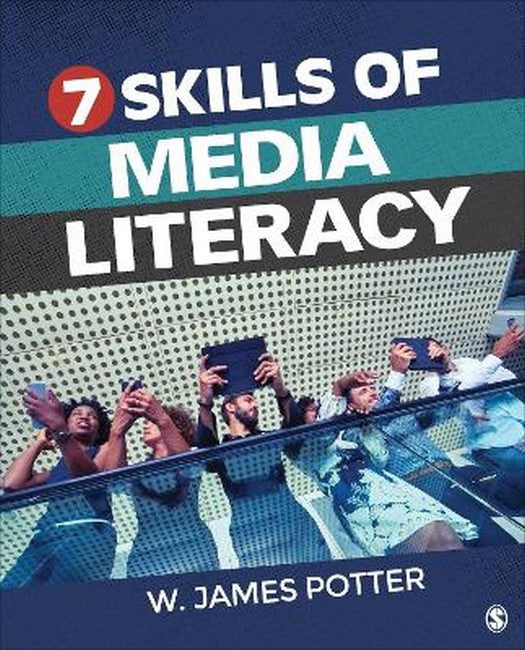W. James Potter, professor at the University of California at Santa Barbara, holds one PhD in Communication Studies and another in Instructional Technology. He has been teaching media courses for more than two decades in the areas of effects on individuals and society, content narratives, structure and economics of media industries, advertising, and journalism. He has served as editor of the Journal of Broadcasting & Electronic Media and is the author of many journal articles and several dozen books, including: Media Effects; Media Literacy, 10th edition; The 11 Myths of Media Violence; Major Theories of Media Effects; Becoming a Strategic Thinker: Developing Skills for Success; and 7 Skills of Media Literacy.
Request Academic Copy
Please copy the ISBN for submitting review copy form
Description
Preface 1. Skills in the Context of Media Literacy What Is Media Literacy? Nature of Skills Chapter Review 2. Importance of Skills The Media Challenge Types of Problems The Development of Skills Chapter Review 3. Analyzing: Digging Into the Meaning and Structure of Media Messages The Analysis Algorithm Heuristics Avoiding Traps Chapter Review 4. Evaluating: Making Judgments About the Value of Media Messages The Evaluation Algorithm Heuristics Avoiding Traps Chapter Review 5. Grouping: Classifying Elements in Media Messages The Grouping Algorithm Heuristics Avoiding Traps Chapter Review 6. Inducing: Looking for Patterns Within and Across Media Messages The Induction Algorithm Heuristics Avoiding Traps Chapter Review 7. Deducing: Reasoning with Logic from General Principles The Deduction Algorithm Heuristics Avoiding Traps Chapter Review 8. Synthesizing: Assembling Novel Configurations Challenges The Synthesis Algorithm Heuristics Avoiding Traps Chapter Review 9. Abstracting: Communicating the Essence of Media Messages The Abstracting Algorithm Heuristics Avoiding Traps Chapter Review 10. Putting It All Together Pep Talk Conclusion References Glossary
"The term "media literacy" is as difficult to define as the term "critical thinking." This textbook makes the concept a lot less abstract by viewing media literacy in terms of seven essential skills." -- David L. Shabazz "The book provides a thorough exploration into all aspects of media literacy, by an author well-known for his expertise in the subject." -- Donna L. Halper "This is a text that's great for helping students develop the kind of critical thinking skills we all talk about wanting students to achieve. As a text for analyzing messages...it seems as though it would be an excellent source." -- Margaret Haefner "This textbook is an excellent opportunity for students to better understand media literacy and the skills required to critically think about how media influences their lives. Not only does the author discuss these ideas, but he introduces the skills that students can develop to use these skills in the real world." -- Nancy Bressler "I would describe Potter's book as a tool that would be useful in taking what we often make complex and potentially simplifying the subject matter to make it less intimidating for the learning process." -- Richard T. Craig "A welcome addition to the literature on media literacy as a skills-based orientation that clearly outlines how audiences may recognize, interpret, and judge media influences across various planes of their lives." -- Scott A. Mitchell

